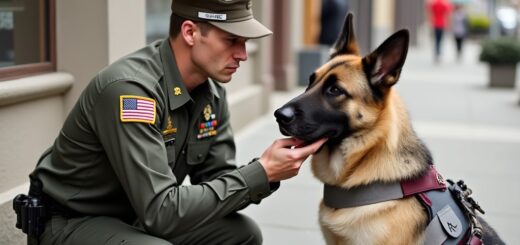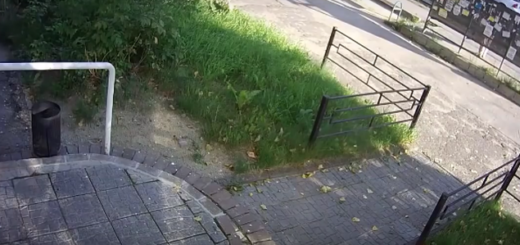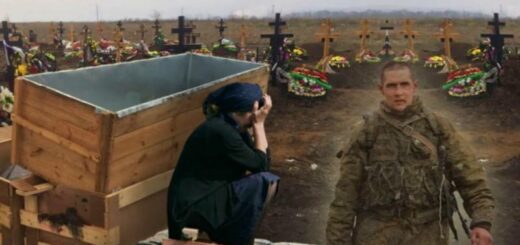The words had barely left his mouth when the tactical display erupted with alerts. The simulated enemy communications center, which should have been unaware of any approaching forces, had suddenly gone to high alert status. All indicators showed they had detected Thade’s team despite their textbook approach.
“What happened?” Hargrove demanded. “Did someone trip a sensor?”
Commander Coltrane’s brow furrowed as he studied the incoming data. “Negative. The alert appears to have been triggered by communications intercept, not physical detection.”
As they watched, Thade’s team was forced into a defensive position, their planned approach now compromised. The element of surprise essential to the mission’s success was completely lost.
“Where the hell is Blackwood’s team?” the Admiral asked, scanning the tactical display for their position.
The answer came moments later as new alerts flashed across the screen. The communications center’s security systems were failing in sequence, their carefully designed defenses disabled by what appeared to be a coordinated electronic and physical breach from an unexpected vector.
“They’re already inside,” Coltrane realized, genuine surprise evident in his voice. “But how? Their beacons never showed approach movement.”
Captain Reeve’s expression remained carefully neutral. “Perhaps Lieutenant Commander Blackwood found an alternative approach method.”
Within minutes, the simulation showed Arwen’s team had secured the objective and neutralized all opposition without firing a single simulated shot. Meanwhile, Thade’s team remained pinned down by superior enemy forces, unable to advance or retreat without sustaining significant casualties. The command center fell silent as the implications became clear. Not only had Arwen’s team succeeded where Thade’s experienced operators had failed, but they had done so using tactics that none of the observers, including Admiral Hargrove, could readily identify or explain.
“I want a full debrief immediately upon their extraction,” Hargrove ordered, his voice tight with barely controlled anger. “This evolution was clearly compromised somehow.”
Captain Reeve and Commander Coltrane exchanged a brief glance before returning their attention to the tactical display, where Arwen’s team was now executing a textbook extraction, moving with the same ghost-like efficiency that had characterized their entire operation.
“Yes, sir,” Coltrane responded professionally. “I’m certainly interested to hear Lieutenant Commander Blackwood’s explanation of her team’s approach.”
The debriefing room crackled with tension as Lieutenant Commander Arwen Blackwood stood before the tactical display, methodically explaining her team’s infiltration approach. Admiral Hargrove sat at the center of the observation table, his fingers steepled before him, eyes narrowed with barely contained suspicion.
“We utilized a non-standard insertion technique,” Arwen explained, her voice measured and professional. “By diverting along this ravine system, we avoided the primary sensor grid entirely.”
“That ravine doesn’t appear on standard topographical maps,” Commander Coltrane noted, studying the display with genuine interest.
“It’s a seasonal drainage feature,” Arwen replied, “only visible during certain months or after studying historical satellite imagery.”
Lieutenant Thade leaned forward, his earlier confidence replaced by reluctant curiosity. “Even accounting for the ravine, your team covered that distance in impossible time.”
“We employed a modified equipment configuration,” she continued, displaying images of her team’s gear arrangements. “By redistributing weight and utilizing alternative carry methods, we increased movement efficiency by approximately twenty-two percent.”
Admiral Hargrove’s jaw tightened visibly. “These modifications aren’t part of standard SEAL tactical doctrine.”
“No, sir. They’re adaptations developed for specific operational requirements,” Arwen acknowledged. “They remain within regulatory parameters while optimizing performance for this particular terrain profile.”
“And the communications intercept that compromised Lieutenant Thade’s team?” Coltrane pressed. “How exactly did you manage that without specialized equipment?”
For the first time, a flicker of hesitation crossed Arwen’s face. “We repurposed standard-issue communication gear with modified protocols.”
“Impossible,” Thade interjected. “Standard gear doesn’t have that capability.”
“Not with standard configurations,” Arwen agreed, “but with certain adjustments learned during previous deployments, functionality can be significantly expanded.”
Admiral Hargrove slammed his hand against the table, the sharp sound cutting through the room. “Enough evasions, Lieutenant Commander. You employed classified techniques outside the scope of this training program, techniques that you have no documented training or authorization to utilize.”
The room fell silent as all eyes turned to Arwen. Even Captain Reeve, observing from the back of the room, tensed slightly at the direct confrontation.
“With respect, Admiral,” Arwen replied, her composure unbroken, “my full operational history and training record contain classified sections that aren’t accessible at this briefing’s security level.”
“I have Alpha-9 clearance,” Hargrove countered. “There is no operation conducted by Naval Special Warfare that I cannot access.”
Something subtle shifted in Arwen’s expression—not quite a smile, but the barest hint of knowledge held in reserve. “Yes, sir.”
The simple acknowledgment carried implications that rippled through the room. If Hargrove’s Alpha-9 clearance didn’t grant him access to Arwen’s full record, then whatever operations she had participated in existed outside standard Naval Special Warfare command structures—something theoretically impossible for a Naval officer of her rank.
Captain Reeve stepped forward smoothly. “Admiral, perhaps we should continue this discussion in a more appropriate setting. Lieutenant Commander Blackwood’s team achieved all mission parameters with exceptional efficiency. For training purposes, that outcome should be our primary focus.”
Hargrove’s eyes darted between Reeve and Arwen, clearly sensing layers of meaning in their exchange that he couldn’t fully decode. “This isn’t over, Lieutenant Commander,” he said finally. “Commander Coltrane will complete the standard debrief. I expect your team’s full report on my desk by 0800 tomorrow.”
As the Admiral departed, the atmosphere in the room shifted perceptibly. Thade studied Arwen with new intensity, reassessing everything he thought he knew about the quiet officer who had just outmaneuvered his experienced team using tactics he couldn’t identify despite years of special operations experience.
“Dismissed,” Commander Coltrane announced after completing the formal debrief requirements. “Excellent work by both teams under challenging conditions.”
As the operators filed out, Lieutenant Kelwin lingered behind, waiting until he could approach Arwen privately. “That drainage ravine,” he said quietly. “It doesn’t appear in historical satellite imagery either. I checked.”
Arwen regarded him steadily. “You have good attention to detail, Lieutenant.”
“My father served in special reconnaissance. He taught me that what isn’t said often matters more than what is.” Kelwin hesitated before continuing. “Whatever you’re really doing here, Commander, I don’t think it’s what Admiral Hargrove believes it is.”
“Focus on the training, Lieutenant,” she replied, neither confirming nor denying his implied question. “This program has valuable lessons for everyone involved.”
Before he could respond, Captain Reeve appeared at Arwen’s side. “Lieutenant Commander, a moment of your time.”
Kelwin nodded respectfully before departing, leaving the two women alone in the debriefing room. Reeve activated a small electronic device that emitted a subtle hum, establishing a localized counter-surveillance field.
“The Admiral is accelerating his inquiries,” Reeve informed her, her voice low despite the security measures. “He’s requested your complete service record directly from Naval Personnel Command.”
“They’ll provide the official version,” Arwen replied calmly.
“Yes, but he’s also reaching out through unofficial channels—former teammates, previous commanding officers.”
“As expected.” Reeve studied her face closely. “He’s growing desperate. That makes him dangerous.”
“It also makes him predictable,” Arwen countered. “The culmination ceremony is in three days. Everything remains on schedule.”
“And if he attempts to remove you from the program before then?”
“He won’t,” Arwen said with quiet certainty. “His pride demands public vindication, not administrative maneuvers. He needs to prove he was right about women in special operations, especially to the visiting dignitaries and command staff.”
Reeve nodded slowly. “The package arrived this morning. Secure storage in my quarters until the ceremony.”
“Any word on our ghost?”
“Still silent. But if our theory is correct, they’ll make contact at the ceremony. It’s their last opportunity.”
Arwen’s expression hardened almost imperceptibly. “Seven years is a long time to wait for answers.”
“Some missions require patience above all else,” Reeve reminded her, deactivating the counter-surveillance device. “We’re close, Arwen. Don’t lose focus now.”
The following morning brought a new evolution. This one focused on close-quarters battle techniques in urban environments. The training facility had been configured to simulate a multi-story structure with complex interior architecture, challenging even experienced operators’ tactical movement and decision-making. Admiral Hargrove observed from the elevated control room, his attention fixed on Arwen with predatory focus. Beside him, a visitor in the uniform of a Marine Corps general studied the proceedings with professional interest.
“The female officer,” the general noted, “Lieutenant Commander Blackwood. Her file crossed my desk last week. Impressive qualifications.”
“On paper, perhaps,” Hargrove replied dismissively. “Reality often proves less impressive than administrative documentation.”
“I understand she’s performed exceptionally well in this program so far,” the general pressed, “including yesterday’s night evolution.”
Hargrove’s expression tightened. “Temporary successes in controlled training environments don’t translate to sustained combat effectiveness, General Hayes. My concern remains the long-term viability of female operators in tier-one special operations roles.”
“A concern not universally shared across Joint Special Operations Command,” Hayes observed mildly. “The data increasingly suggests that properly selected and trained female operators provide unique tactical advantages in certain scenarios.”
Before Hargrove could respond, alarms blared through the facility. On the monitoring screens, a training scenario had suddenly escalated beyond planned parameters. Smoke filled one section of the structure as warning indicators flashed across the control panels.
“What’s happening?” Hargrove demanded.
























































